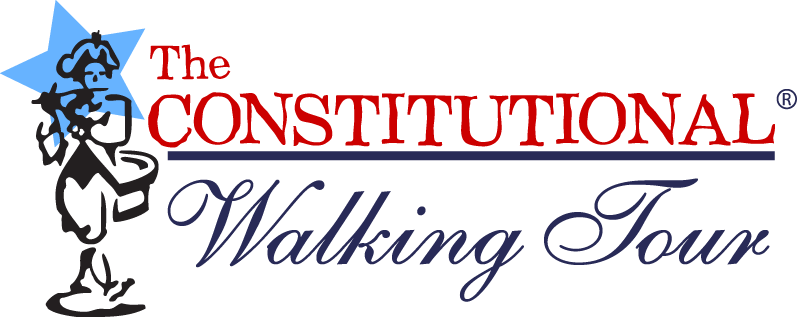Related Posts
- Buy Tickets for The Constitutional Walking Tour of Philadelphia – See 20+ Sites on a Primary Overview of Independence Park, including the Liberty Bell and Independence Hall
- America's Founding Fathers
- Washington Crossing Historic Park
- Valley Forge National Historical Park
- Second Continental Congress
- George Washington - One of America's Founding Fathers
- Thomas Jefferson - One of America's Founding Fathers
- Second Bank of the United States
- Congress Hall
Birth: April 28, 1758
Death: July 4, 1831 (age 73)
Colony: Virginia
Occupation: Plantation Owner, Lawyer, Soldier, Politician
Significance: Served in the Revolutionary War (1775-1780); Served in the Continental Congress (1783-1786); Served in the United States Senate (1790-1794); Governor of Virginia (1799-1802, 1811); Secretary of State (1811-1817); Secretary of War (1814-1815); President of the United States (1817-1825)

James Monroe was one of the Founding Fathers of the United States and the last United States President to have served in any leadership role in the American Revolution. Born to a prosperous Virginian family, Monroe grew up on a plantation where his family owned slaves known as a Monroe Hall. Monroe attended college with the intention of becoming a lawyer but dropped out to join the Continental Army as the Revolutionary War began in 1775. Monroe participated in the Battle of Trenton which took place after George Washington's famous "Crossing of the Delaware." The battle was successful and although minor in scale, served as a huge turning point for American morale. Monroe served with distinction during the battle but suffered a severed artery and nearly died. Monroe was promoted to the rank of Captain after the Battle of Trenton and served in several other significant battles including the Battle of Monmouth. Monroe also spent the winter of 1777-1778 stationed at Valley Forge. As the Revolutionary War began to come to an end, Monroe resumed his studies and became a Lawyer in Virginia.

In 1782 Monroe was elected to the Virginia House of Delegates, and then a year later he was elected to serve Virginia in the Continental Congress (Congress of the Confederation.)
in 1790 Monroe was elected to the United States Senate following the death of William Grayson, who was one of Virginia's first two Senators. Monroe served the rest of Grayson's term but did not run for reelection and instead accepted an appointment from George Washington to serve as Minister to France. Monroe was popular in France during the turbulent time of the French Revolution but was eventually recalled by Washington in 1796. Monroe returned to Virginia where he was eventually elected Governor and served until 1802. While Governor Monroe supported Thomas Jefferson for President in the election of 1800 and became one of his closest allies.
After his term as Governor ended, Jefferson sent Monroe to France again where he helped to negotiate the Louisiana Purchase, doubling the size of the United States. Jefferson then named Monroe Minister to Great Britain in 1803. Monroe was once again elected to the United States Senate in 1811 but resigned from the position within months to serve as James Madison's Secretary of State. While in the position, Monroe supported declaring war on the British which was declared by Congress on June 18, 1812. As the war effort began to go south, Madison dismissed Secretary of War William Eustis and for a time, Monroe served as both Secretary of War and Secretary of State. While serving in the dual roles, Monroe has unprecedented control over the war effort from a cabinet position and was instrumental in decisions to draft more soldiers, increase soldier pay and benefits and to establish a national bank. The National Bank would eventually be approved by Congress after the War of 1812 and became the Second Bank of the United States.
His leadership during the War of 1812 had burnished Monroe's national reputation and Monroe entered the race to become America's 5th President in the 1816 Election and was ultimately successful. Monroe was the last "Founding Father" to serve as President of the United States. Though amazingly Monroe was not the last President to have served in the American Revolution. Andrew Jackson, the 7th President, who was elected 12 years after Monroe was elected did actually serve in the American Revolution as a 13 year old courier. But Jackson had no position of leadership within the American Revolution that would give him claim to the title of "Founding Father." The next two Presidents after Jackson, Martin Van Buren and William Henry Harrison was just children during the American Revolution and were the last Presidents to have been before America won its Independence.
Monroe's Presidency was largely seen as successful and his time in office is often referred to as the "Era of Good Feelings." He is perhaps best remembered by his Monroe Doctrine which supported newly independent American nations such as Argentina, Peru, Colombia, Chile, and Mexico who had won their independence from Spain. Monroe believed that George Washington has erred in not demonstrating sympathy and support for those who wished to establish a republic in France during the French Revolution and was determined not to make that error again. Monroe believed it to be a moral obligation to support republican governments throughout the world and support the right of the people to govern themselves. Monroe's actions in relation to the Missouri Compromise which expanded slavery as the United States grew westward have however, since tarnished his reputation.
Monroe enjoyed largely unparalleled support during his presidency though, as demonstrated by the fact that he ran unopposed for reelection, the only President besides George Washington to do so. During Monroe's Presidency, five states were added to the Union, Mississippi, Illinois, Alabama, Maine, and Missouri.
After his presidency Monroe returned to his home in Virginia. Monroe died on July 4, 1831. Incredibly enough Monroe was the third of America's first five Presidents to die on Independence Day, joining Thomas Jefferson and John Adams.
Monroe in Philadelphia
By the time that James Monroe was elected to the Continental Congress in 1783, the Congress had already departed its longtime home of Philadelphia, so Monroe never had the opportunity to serve in Independence Hall. Nearly a decade later however, Monroe served in the United States Senate while the Capital was once again in Philadelphia. During this time, Monroe worked for four years inside of Congress Hall, the meeting place of Congress in Philadelphia in the 1790s. Monroe was also instrumental in the creation of the Second Bank of the United States which is located in Philadelphia. Today Congress Hall and the Second Bank of the United States are two of the stops visited along The Constitutional Walking Tour!




